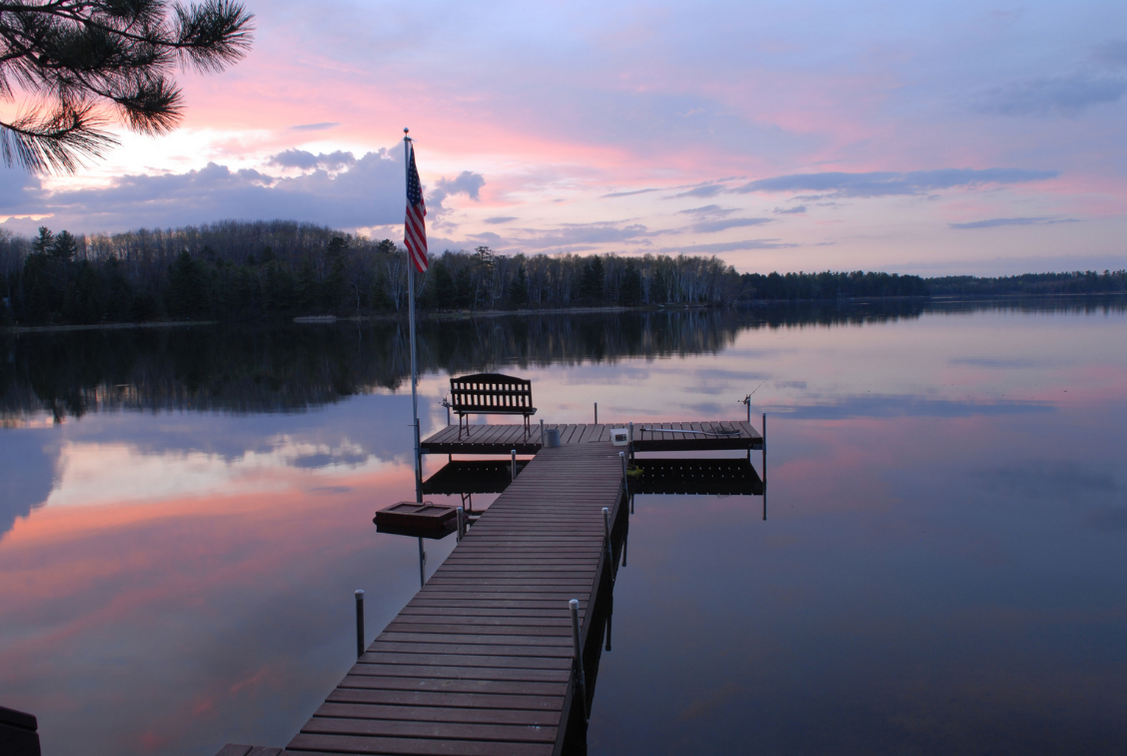The words “up north” mean something special to a lot of families in Wisconsin. It’s the place they go to get away from the stress of work. It’s where they gather with family during the summer holidays. It’s where they can breathe the freshest air on earth as they watch the clouds blow by high above a beautiful lake.
It often means a home or cabin where memories are made, and one that will hopefully remain in the family for several generations. But keeping your up north property in the family won’t happen by accident. It takes careful planning to ensure the land won’t be lost to long-term care costs or other issues like divorce, lawsuits, and even intra-family disagreements.
This and the next two posts will cover three actions you can take to help ensure that your dream of passing your up north property down in your family can come to fruition. The first issue we’ll tackle here will be long-term care costs.
I’ve spoken about the realities of long-term care and its costs time and again. But just to reiterate . . .
Currently, nursing home costs in the Oshkosh area are over $110,000 per year. And if you don’t have adequate long-term care insurance (and most do not), you’ll be paying those bills with your own savings and other assets until you spend down enough to qualify for Medicaid.
How low do you have to spend to qualify for Medicaid? If you’re single, aside from you home and a car, you’ll be allowed to keep a maximum of $2,000 in additional assets. If you’re married, it’s better – you can keep your home, a car, the healthy spouse’s IRA(s), and additional assets that total about $130,000.
In either situation, however, where does your land up north fit in? If you’re single, it can’t. But even if you’re married, additional real estate will take up a big chunk or all of that additional $130,000 in assets you can keep. If your land is worth more than $130,000, there’s little hope of preserving it. But even if it’s worth less than that amount, it would put a huge burden on the healthy spouse by denying him or her available cash to live on.
So, what can you do? Some folks think they should just deed the property to their adult children before the possibility of long-term care is on the near horizon. There are two issues with that, however.
First of all, you are denying your children the ability to receive a stepped-up basis for capital gains taxes. As of now, property received on the death of an individual owner receives a full step-up in cost basis; meaning that if your children are forced to sell the property sometime after your death, their tax burden will be greatly minimized. That stepped-up basis doesn’t happen if you give the property to your children during your lifetime, which means your children would probably be hit with a large tax bill should they have to sell the property after you’re gone.
Second of all, you are forgoing a great degree of protection that can go with the land but usually only comes with proper estate planning. This protection can keep the land in the family even if any of your children ever get divorced, get sued, or file for bankruptcy. I’ll talk more about this protection in Part Two of this series.
Instead of just giving the land away, a better option would be to place it all in a Medicaid Trust. These are sometimes referred to as Medicaid Irrevocable Trusts (MAPTs) or Medicaid Asset Protection Trusts (MITs), but I just like to keep it simple and call them Medicaid Trusts. A Medicaid Trust works like a normal revocable living trust for estate planning purposes, in that by utilizing the trust, you can ensure a smooth and relatively quick administration of your estate after your death while also putting protection on your family’s inheritances. But a Medicaid Trust has the added bonus of shielding the assets held by the trust from Medicaid spend-down requirements. In other words, if your land up north is held in a Medicaid Trust, you won’t have to sell it off and spend down the proceeds to qualify for Medicaid.
Medicaid Trusts are more ideal for some assets than others. I always say that they are perfect for real estate, particularly second properties. You and your family will be able to continue to use the land up north during your lifetime, the land will be protected from long-term care costs, and it will be transferred to your family after your death outside of probate with a full step-up in costs basis and have great protections on it.
To learn more about second property planning or to schedule your free initial appointment, contact me at (920) 221-0320 or By Email.
Protect Your Land Up North (Part One)

